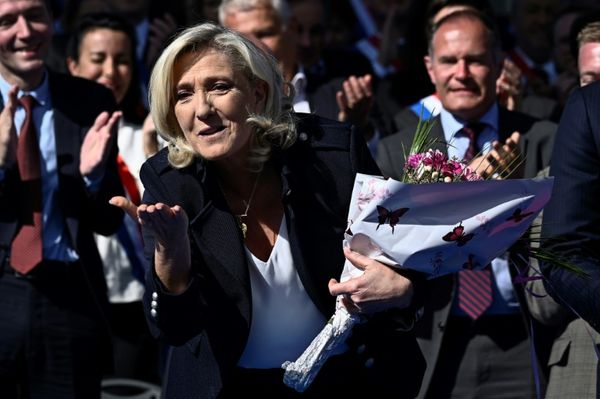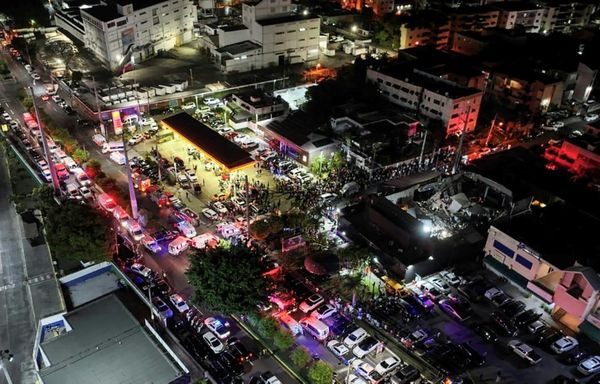
It’s a rare feat for anyone to have played a key part in two of the UK’s greatest eras of motorsport in two such disparate disciplines.
In one, he found himself part of the elite almost by accident; in the other, he was instrumental in its success.
Mike Nicholson, who has died aged 81, will be remembered not only as a top competitor in the heyday of the British Open rally championship, in which he co-drove Jimmy McRae to the 1984 crown, but also as head of Vauxhall’s motorsport programme – which, over a 21-year period, resulted in British Touring Car Championship crowns for John Cleland, Jason Plato, James Thompson, Yvan Muller and Fabrizio Giovanardi. Both series, at their respective peaks, were hailed as ‘world’ championships that just happened to take place on UK soil.
Not only that, but when the BTCC-supporting TOCA package was formed for 1993, as the Super Touring era brought crowds flocking to the circuits and big manufacturer money to the paddock, Nicholson pushed his marque’s Formula Vauxhall Lotus and Formula Vauxhall Junior – and, later, the Vectra Challenge – championships to the circus.
“Vauxhall were a car manufacturer but they hadn’t been into motorsport,” recalls John Cleland, who won the 1989 and 1995 BTCC titles with the Astra GTE and the Cavalier over an 11-year stint in the series. “They were into football. But, if anything, we became as big as the Ford Motor Company when you consider their footprint in motorsport versus Vauxhall’s. I think we left a mark.”
“If it hadn’t been for Mike, and his support of us, Triple Eight wouldn’t have happened or it would have been very difficult to get going,” adds Ian Harrison, boss of the team of that name, which ran Vauxhall’s works BTCC effort from 1997-2009. “Mike made it easy. He needed our help and we needed his, so mutually it all worked really well. He became a lifelong friend after that.”
Nicholson was the son of a horse trader in the East Midlands, but preferred machinery that didn’t have a mind of its own and began a clandestine rally navigating career with lads from the local farming community.

By the early 1970s, a chance conversation with noted driver Roger Platt began to push Nicholson towards the big time, initially with Ford Escorts. During the middle of the decade, he moved to the British Leyland works team, sitting alongside Pat Ryan, mainly in the Triumph Dolomite Sprint.
After an approach from Dealer Team Vauxhall, Nicholson’s big break came for 1978 when he was selected to co-drive Pentti Airikkala in the Chevette HS in the British Open, beginning a professional career under the General Motors umbrella that would last three decades.
Over the next few years he called notes for McRae (father of the late Colin), the great Tony Pond and Terry Kaby with Chevette machinery before, in 1984, his title victory with McRae in the revered Opel Manta 400.
Nicholson had become employed by Vauxhall in 1979, initially as fleet sales manager but, as the 1980s wore on, he began to pivot more into a motorsport role with the company, and began to manage the rally programme. Although his co-driving career was winding down, he did contest some rallies with Le Mans 24 Hours legend Derek Bell, to whom his much-broadcasted entreating Nicholson used as the title of his charming autobiography Listen To Me.
Cleland remembers Nicholson’s move to motorsport chief for Vauxhall being evolutionary, albeit as part of a marque management team that included chairman Mark Bowie plus Steve Thompson (the ex-Formula 5000 ace) and John Nixey. “There wasn’t anybody else at Vauxhall that knew as much as he did to get involved as competition manager,” says the Scot. “Nobody had that knowledge, but he had.
“Steve and I were the first to drive the Brock Holden when it came across here in the Marlboro colours [and which would kick-start Cleland’s mid-to-late-1980s stint in Thundersaloons]. Mike wasn’t really at the pointy end of it when the Thundersaloons were there; he came on towards the end of that when the Astra was about to come into racing. As soon as we got into touring cars, Mike was there – he was that link between the team and the people that wrote the cheques.
“He was able to make the case to the powers that be at Vauxhall. I lost count of the number of Monday mornings where I got a phone call [from Nicholson] after an event and we’d have the conversation about, ‘Do we need any more lawyers involved?’”

Cleland remembers an incident in the first race at Snetterton in 1995, and a piece of skullduggery that only came to light between races because Nicholson’s wife Marie was one of the bosses at BHP, the production company that popularised the BTCC through its highlights packages for the BBC. It culminated in a driver who was primed to take out Cleland’s Cavalier removing another car instead.
“They had greased over the bumper cam prior to the race, and you could hear, ‘Have you sorted that camera on the front?’” recalls Cleland. “Marie had access to the filming, and between the races all hell broke loose, and I remember Mike being heavily involved in all of that.
“I remember him phoning me one Monday morning and saying, ‘Listen, that company car that we’ve replaced for you, it’s just gone through an auction. Did we ever use that for a recce on a rally?’ I said, ‘No I don’t think so, why?’ ‘Well, the underneath of it’s f**ked.’ And it was just one particular dip in the road on my way home that I just always used to flatten the exhaust on… Dear old Mike had to continue to bail my company cars out of trouble.”
Vauxhall’s works team RML jumped ship to Nissan for 1997, so Nicholson pushed through a deal with a new operation initially spearheaded by Derek Warwick, former privateer team boss Roland Dane, Harrison and ex-TWR Volvo design chief John Gentry. This was the BTCC’s equivalent of a 1970s prog-rock supergroup.
“We were at a hotel in Newbury,” chuckles Harrison. “I was working at Williams and I was desperate to keep it quiet. Derek was there, and he met up with Mike and got a room for an hour – very dodgy! – and I hid in the bathroom. Mike had no idea that I was involved, and I’d really been worried that Frank [Williams] would find out.
“They’d been chatting away, and after a few minutes I opened the bathroom door, and Mike went, ‘Ooh what’s going on here? Jesus Christ, what are you doing here?’ And I just put my head out the door and said, ‘Is it safe?’ That was the cat out the bag then and we just went from there. Mike’s influence was massive. He got everybody on side at Vauxhall and off we went.”
Harrison credits Nicholson’s influence for the BTCC’s reinvention on the demise of the Super Touring era at the end of 2000 and into the new BTC Touring regulations for 2001: “Roland and Peter Riches [BTCC technical chief] steered the BTC regulations because Roland knew how much money General Motors had, and I think it went from £6million in Super Touring and the following year it was £1.3m or something like that.

“They said, ‘Look, we’ve got to build cars around this sort of money’, and we did. We were building cars [the Astra Coupe] with a price cap on them – building them for 80 grand and selling them for 120 grand. They steered it along because Mike was quite open about how much money they had to spend, and that’s what got BTC off the ground. Mike was massively involved with that.”
Nicholson was renowned as a heart-on-sleeve, motorsport nut combined with the savvy required to push through his projects, particularly during his final decade at Vauxhall, when manufacturers were merging, pulling out of the sport or downsizing their commitments.
“I’m privileged to have felt that he was a good mate,” reflects Harrison. “Socially as well as professionally, we got on really well and we met up and did stuff. He would always try to come along to social events. He started flying and he kept trying to coax me along to Turweston where he’d go up in this bloody little aeroplane of his, and I’d be, ‘Sorry mate, I’ll keep my feet on the ground if you don’t mind!’”
“He was always a constant, he was an enthusiast through and through, he knew the story,” sums up Cleland. “He definitely loved the sport, and he and Marie were really suited for what Mike did. He was there through my entire tenure – good, bad and indifferent.”







